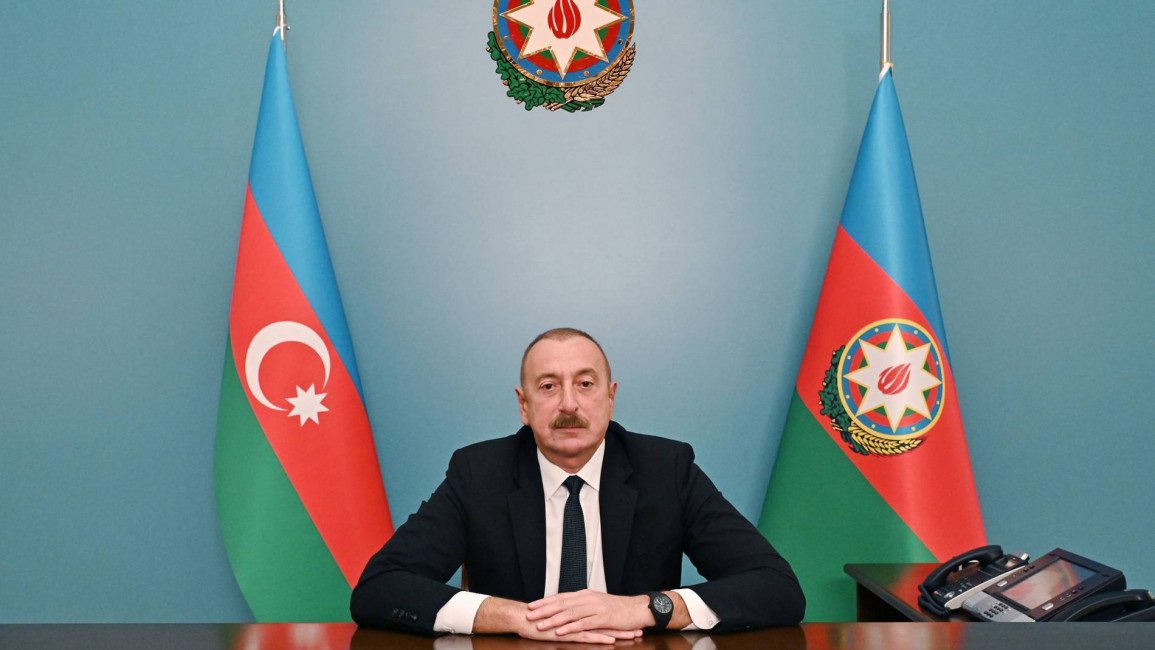World
Following the Karabakh separatists’ capitulation, Azerbaijan declares victory

In response to a military operation, separatist Armenian rebels agreed to give up their weapons, and Azerbaijan announced on Wednesday that it had recovered authority over breakaway Nagorno-Karabakh for the first time in decades.
President Ilham Aliyev of Azerbaijan has achieved a significant win in his fight to retake control of Nagorno-Karabakh, which is populated primarily by Armenians. The shocking defeat of separatist opposition.
Since the fall of the Soviet Union, two conflicts between Armenia and Azerbaijan have been fought over the mountainous area.
Both sides have committed crimes during the years of the conflict, and there are now worries about a new refugee crisis since the Armenian population of Karabakh is afraid of being driven out.
The ethnic Armenian leadership in Karabakh and Baku declared a ceasefire agreement had been negotiated by Russian peacekeepers to end the fighting a day after Azerbaijan began its military assault in the area.
In a televised speech, Aliyev declared that “Azerbaijan restored its sovereignty as a result of successful anti-terrorist measures in Karabakh.”
The majority of the Armenian forces in the area, according to Aliyev, had been mostly annihilated, and the separatist troops’ evacuation had already started.
According to separatist spokesman from Nagorno-Karabakh Gegham Stepanyan, the attack left “at least 200 dead and more than 400 wounded.”
cease-fire holding
According to the terms of the cease-fire agreement, the separatists pledged to completely destroy their army and Armenia agreed to withdraw all of its forces from the area.
According to Azerbaijan’s defence ministry, “all weapons and heavy armaments are to be surrendered” under the guidance of Russia’s on-the-ground, 2,000-person peacekeeping team.
Both parties announced that negotiations to reintegrate the separatist territory into the rest of Azerbaijan would take place on Thursday in Yevlakh.
Russian peacekeepers will arbitrate the negotiations, according to President Vladimir Putin.
According to Moscow, a number of its soldiers in Karabakh perished when the vehicle they were riding in came under fire.
But Wednesday night, peacekeepers reported that the truce was holding and that no violations had been noted.
current violence
The most recent act of violence in the rough terrain was Baku’s operation.
Early in the 1990s, with the dissolution of the Soviet Union, Armenian separatists took control of the area, which was then officially regarded as being a part of Azerbaijan.
In addition to displacing hundreds of thousands from their homes, the war claimed 30,000 lives.
In a six-week war in 2020, Azerbaijan reclaimed large portions of the region.
On Wednesday, President Aliyev lauded the “political competence” of his longtime foe.
The peace process between Azerbaijan and Armenia will benefit, he said, from the events of yesterday and today.
Hikmet Hajiyev, the foreign policy adviser to the Azerbaijani president, pledged safe passage for the rebels who gave up and stated that Baku aimed for the “peaceful reintegration” of Armenians from Karabakh.
Over 10,000 individuals, according to a separatist official, have been “forced to find a shelter” elsewhere in the region after being evacuated from Armenian communities in Nagorno-Karabakh.
Putin added that Moscow has been in touch with all parties to the issue and expressed his wish for a “peaceful” conclusion.
The Kremlin claimed that the problem was “Azerbaijan’s internal matter” notwithstanding Putin’s discussions with Nikol Pashinyan, the prime minister of Armenia, on Wednesday night.
“War is over,”
Thrilled citizens in the capital of Azerbaijan voiced hope that the agreement marked a clear win and the end of the protracted struggle.
“This news made me very delighted. The conflict is finally finished,” 67-year-old retiree Rana Ahmedova told AFP.
Fury over a second Karabakh defeat in three years was felt across Armenia.
The separatist region’s flag-waving protestors stopped a vital thoroughfare in Yerevan, the capital of Armenia, and riot police manned government buildings as clashes erupted there.
Police fired stun grenades and made arrests as demonstrators flung bottles and stones at them while criticising the government’s handling of the issue.
Losing in Karabakh puts Pashinyan under much more pressure at home, where he has already received harsh criticism for giving in to Azerbaijan after the 2020 debacle.
Sargis Hayats, a 20-year-old singer, declared, “We are losing our people and our country.”
Time has proven that Pashinyan is incapable of leading, hence he “must leave.” Nobody gave him the order to surrender Karabakh, he claimed.
The leader of Armenia has stated that the most recent ceasefire agreement was not written by his government.
He reiterated his denial that his nation’s military was present in the region and stated that he anticipated Russian forces would assure ethnic Armenian residents of Karabakh could continue to live “in their homes, on their land”.
The attack by Azerbaijan occurred as Moscow, the conventional regional power broker, was occupied and sidetracked by its conflict with Ukraine, which left Russia isolated in the West.
However, it appears that its peacekeepers there were instrumental in negotiating the ceasefire and will now be in charge of seeing that it is carried out.
The operation was deemed “justified” by Turkey, a longtime friend of majority-Muslim Azerbaijan, which sees largely Christian Armenia as one of its primary adversaries in the area.
In recent months, the EU and the US have acted as mediators in talks between Baku and Yerevan with the goal of achieving a long-lasting peace agreement between the two enemies.
